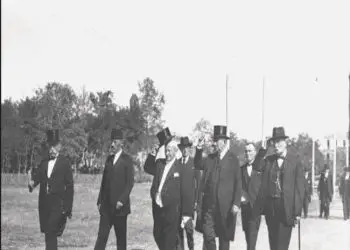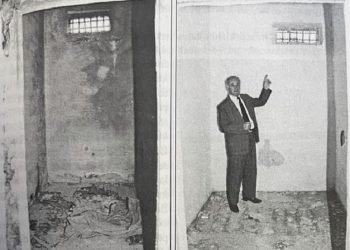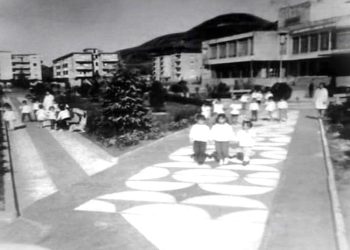By Sokrat Shyti
Part Fifty-Eight
Memorie.al /The writer Sokrat Shyti is the “great unknown” who for several years has shown the tip of the iceberg of his literary creativity. I say this based on the limited number of his published books in recent years, mainly the voluminous novel “The Ghost Night” (Tirana 2014). The novels: “BEYOND MYSTERY,” “BETWEEN TEMPTATION AND WHIRLPOOL,” “THE DIGGING OF NIGHTMARES,” “THE SHADOW OF SHAME AND DEATH,” “COLONEL MAIN HAND,” “THE FADING HOPES,” “THE TWISTS OF FATE” I, II, “SURVIVAL IN THE COWSHED,” as well as other works, all novels with 350 – 550 pages, are in manuscripts waiting to be published. The dreams and initial enthusiasm of the young novelist, returning from studies abroad full of energy and love for art and literature, were cut short early by the harsh blade of communist dictatorship.
Who is Sokrat Shyti?
Having returned from studies at the State University of Moscow right after the rupture of Albanian-Soviet relations in 1960, Sokrat Shyti worked in “Radio-diffusion” (which at that time was located on Kavaja Street), in an editorial office with his journalist friends – Vangjel Lezho and Fadil Kokomani – both of whom were later arrested and subsequently executed by the communist regime. Besides the radio, 21-year-old Sokrat had passionate literary interests at that time. He wrote his first novel “Madam Doctor” and was on the verge of publication, but… alas! Shortly after the arrest of his friends, to fill the cup, one of his brothers, a painter, escaped abroad.
Sokrat was arrested in September 1963, and in November of that year, he was interned along with his family (his mother and little sister) in a place between Ardenica and Kolonje of Lushnje. For 27 consecutive years, the family lived in a cowshed made of reeds, without windows, while Sokrat was subjected to forced labor. During those 27 years, he was legally obliged to report three times a day to the local authority. He had no right to leave the place of internment, was deprived of any kind of documents, etc. In these conditions, amid a cowshed, he gave birth to and raised his children. Precisely from this event, or more accurately a very long story of persecution, he based his writing of the book “Survival in the Cowshed”!
Agron Tufa
Continued from the previous issue
EXCERPT FROM THE BOOK “SURVIVAL IN THE COWSHED”
After a few minutes, I fell into a deep sleep, free from dreams and disturbances. I did the right thing by telling my attentive neighbor, who had already started shaking me in Mamurras, to sober up before arriving at my station.
– “Did you check your tickets?” – I asked.
– “She didn’t see the need to wake you up,” – the neighbor explained.
– “The newspaper I just read reports that the situation with Greece is getting worse: calls from fascist and Nazi groups against us have begun to be heard openly. The situation on the border is tense, the winds of provocation are blowing, and our armed forces have been put on high alert.”
– “NATO and the WARSAW TREATY, being two aggressive pacts, have as their main goal to threaten our socialist state, from time to time, although they know that we are not afraid of their presence, of the roar of their weapons, because when they point the muzzle of their rifle at us, we turn the muzzle of their cannon back to them! – I replied. – Among us, all the people are soldiers. Therefore, there is no threat of defeating us”!..I added, standing up to get out of the carriage.
When I got off the train, I asked the station manager if there was a bus to Burrel.
– “There is no permanent line,” he explained. “But on occasion, when a large number of people gather, the travel agency in Burrel is notified, and they set off if they have a vehicle, even a truck covered with raincoats and with wooden benches. But don’t pin your hopes on something uncertain. It’s better to go out at the turn, because there are a lot of cars leaving from there.”
His advice turned out to be correct. After half an hour, a heavy-duty truck stopped next to me. The driver immediately showed himself willing to take a passenger in his cabin, especially a soldier returning from leave, who must be at the unit at the appointed time. But he seemed somewhat surprised when I told him that I would get off at Kongrazhd.
– “Do you know why I was surprised?” he added, looking at me intently. “Because I often walk this road, I know what the soldiers here look like: shepherds and farmers in military uniforms. But you look different, with soft hands…”!
“I am the assistant commissar,” I replied, to dispel his suspicion.
“This also explains the difference I mentioned above. Then it turns out that you must have been on duty somewhere, and now you are returning…”, he continued his interest.
“You missed the point,” I added, convinced that this would put an end to his curiosity.
He took a close look at my profile, and after carefully noting the visible gray hair, he probably agreed with the determination that I was the assistant commissar, regardless of whether I was a career soldier or a conscript.
When we reached the turn of the unit, I thanked him for bringing me at the right time, wishing him good work and good health. It seemed strange to me that I was coming to these hills with red soil, always covered with the mist of the mist. But I quickly shook this feeling from myself, as I was excited by the most urgent request, which I was impatiently waiting to hear with my ears, from the colonel’s mouth, the announcement of the permanent transfer. I silently prayed that this would be the last time I would see these hills with red soil, and from now on I would settle in milder places, with a prosperous climate and fertility.
Luckily for me, the guard officer, Commander Sula, was at the checkpoint. Therefore, there was no need to show him my hospital discharge slip, since he was fully aware of my movements through the commissar’s explanations.
However, out of politeness, I briefly described the operation and the sick leave at the apartment.
– “You returned on time,” – he said, looking at me with intense attention.
– “Did something happen?”… – I asked him, somewhat worried.
– “How is the situation over there in your area?” – he added with the same look.
– “In what sense?” – I replied, examining him carefully.
– “You must have met your friend, Angel, and he must have informed you of the expected movements…”, – he continued to inquire.
– “Since I was busy with some family matters during these days, I didn’t have time to meet any of my friends and acquaintances,” I emphasized in a persuasive tone, so that the second lieutenant would not continue with questions, but would open up to me himself.
– “Didn’t you catch the words; ‘general mobilization’”? – he persisted.
– “In the conversation above, someone said that there might be an extraordinary mobilization. But since no one showed interest in knowing more, that was all”!
– “You weren’t even curious to learn any details about why this extraordinary mobilization”?! – he expressed disbelief at my answer.
– “If I were waiting for the call-up for a soldier, I would certainly be interested. But now that I have my mind together…”!
– “That’s exactly what I mean, that the current situation could change…” – he said with a confused look.
– “In what sense can it change? Has the commissar changed his mind; I will not be his assistant? Is there anonymous harassment”?… – I asked these consecutive questions to the second lieutenant to calm down.
– “None of your doubts are valid. The move is forced by current conditions, within the framework of the general mobilization. Now it is no secret that a part of the soldiers of our NBU, mainly new recruits from the Lushnja district, with the exception of farmers and shepherds, will be transferred. You are the first on the list”! – he emphasized.
– “We will go to another NBU”?.. – I played the ignorant!
– “On the contrary: you will be a regular military unit, with weapons, integrated into autonomous regiments”, – explained the second lieutenant.
– “The accompanying officers of the units, in the rank of company commander, have come here”.
– “Does this mean it’s a fait accompli?”… I expressed my surprise, suppressing as deeply as possible the pleasure of the wonderful news.
– “The colonel and the commissar compiled the lists, sent them for approval to the Division Command, and now that they have the signatures and seals, the departure order from the General Command is awaited. The cars are in the yard near the dormitory. Of course, you will report to the colonel, to show him your hospital discharge, and how you spent your vacation with your family. If you meet the commissar on the way, you will greet him, but without giving him any outward sign of what you heard. You must not forget one thing: I will miss you! You entered my heart from the first day of the trip. Therefore, I wish you: a happy journey! Even though I do not know exactly which company you will be in, I will still express my impressions to the accompanying officer, so that he will take them into account. I have that opportunity, and I will do so.”
– “Be assured, Commander Sula, that you will remain in my memory as a wonderful man and an officer with a sense of smell, who knows how to communicate with soldiers, appreciating them from a human point of view! This honors you more than anything else”, – I said, hugging him.
– “Thank you for the high evaluation! I would feel happy if my name, as an accompanying officer, was also included in the order for your transfer! Let alone if it were written) the note: weapons officers, by order of the Commander-in-Chief, are transferred to the disposal of autonomous regiments! But something like that did not happen. Apparently, the need for our presence is still not felt”! – he added with a deep sigh, to express the despair of this disregard.
After hugging him once more, I left the checkpoint. I was flying in the seventh heaven of excitement. I had no doubt that the main merit of the transfer belonged to the colonel. Because being the main leader of the unit, with authority (whose word has the force and weight of law), I was convinced that his objection to the division command would take place, with the explanation that without the journalist, many necessary activities would cease, especially in this tense situation, when the soldiers’ minds are confused with perversion.
Consequently, my name would be hidden. Under these conditions, the colonel’s objection would be supported by the company commissar and commander Sula, my two well-wishers, who, by not giving their consent to my transfer, believe that they are doing me an honor, based on the suspicious assumption that the new autonomous regiments could be sent to the front line of danger, where a thread separates pay from war.
I informed the soldier on duty at the command that I had just returned from the general military hospital, and therefore I must report to the colonel.
– “I’ll let him know right away!” – he was ready.
– “Take advantage of the opportunity since he’s alone, since his office has been full all day today.”
After a while, the soldier came out to the stairs, and motioned for me to come in. I presented myself according to the regulations, and waited. The colonel seemed quite tired from the busy procedures of the soldiers’ movement. But more, in my opinion, he was annoyed by the disregard of the main leaders of the General Staff, who, even in this convenient case, did not take into account the merits of the officer with military skills, when he met all the conditions, to be appointed commander of a new autonomous regiment.
– “It’s good that you came on time… – said the colonel with a heavy look. – If you were late for a day, you would lose the chance of a transfer…”!
– “A transfer order has come for me”?!…- I pretended to be ignorant.
– “Not yours personally, but the entire company’s,” the colonel explained. “You’re first on the list. Coincidences like this one happen once in a while. No matter how well you’re doing here at first, without physical fatigue or stress, you still didn’t know how long this period could last, since no one can predict the surprises of malicious interventions. You could say that there are no guarantees where you’ll end up. But you can be sure of one thing: you won’t be a soldier with a pick and shovel anymore. It’s not excluded that in these honorable situations, there are demands on the skills of talented soldiers.
Because officers are only concerned with fulfilling combat objectives, leaving the ideological axis, class struggle and revolutionary vigilance in the background. Especially experienced commissars show themselves to be refined wrestlers in these situations: their keen sense of smell gives them chances to maneuver skillfully. After all, these are their jobs. For it matters to you that by fleeing the NBU, you remove yourself from the firing range, and put the course of events in another bed.
Between the fragility of a military unit and the possibilities of maneuver, there is a continuous combination, where the smart and agile always find a way to pull the chestnuts out of the fire. The value of this transfer, takes on saving proportions for another fact: it finally saves you from the screaming cries of the Nazif dinosaur, unique in its kind, in the entire Albanian army”! – added the colonel, shaking his head.
– “What wouldn’t I give, in exchange for escaping from his bestial screams”!.. – he said through a prolonged sigh.
– “I got carried away by these thoughts and didn’t ask you how you felt after the operation…”?!
– “I feel good. The wound closed. The calm and restful regime at home were an auxiliary treatment for the rehabilitation of the body”, – I answered him, satisfied with his care.
– “Despite the improved condition, I advise you to have another check-up with the ward doctor wherever you go…”, – he ordered. – And did you meet with the commissar?” – he asked me with a smile.
– “I only greeted Commander Sula with my hand when I passed the checkpoint”, – I told him.
– “They were both disappointed when they found out that you were going to be transferred. But the commissioner expressed his anger like a toad when it gets angry. You will often remember the questions and answers during the political class, when after every primitive “explanation”, he would address you with a mischievous smile: right, Socrates? And you, to please him, would reply: no other way, comrade commissioner”!
– “Even though he lacks the proper culture and education, he still knows how to behave with the soldiers, he has patience, he doesn’t get angry and doesn’t insult them,” I expressed my impression to the colonel. – Whereas the chief of the sector, Ziso, has a different nature: he is dedicated to his work, he always stays close to the animals of the department, he knows how to talk to them in a friendly manner, he takes care of their pregnancy with dedication”! He seems to enjoy his job, and he likes it more than any other task.”
– “These guys are the kind of people who are suitable leaders for the NBU,” said the colonel. “Chief Zisos doesn’t need to be given orders or instructions, or reprimanded for a wrong action. He knows his job in detail, and he fulfills it with great desire. Thanks to Ziso’s work, our military agricultural enterprise is at the forefront of the Republic’s NBUs! – he found the opportunity to finally give the maximum assessment to his subordinate.
At this moment I wanted to hug and hold in my arms this great-spirited major officer, who, despite the difficult situation he was experiencing due to the devaluation of his abilities by cynical and arrogant bosses in the General Staff, did not ignore or despise his subordinates. On the contrary, he maintained a paternal and brotherly attitude towards them, often congratulated them for the work done, expressed gratitude to them for knowing how to behave humanely with soldiers, and did not use harshness and cruelty towards them. Memorie.al
To be continued in the next issue




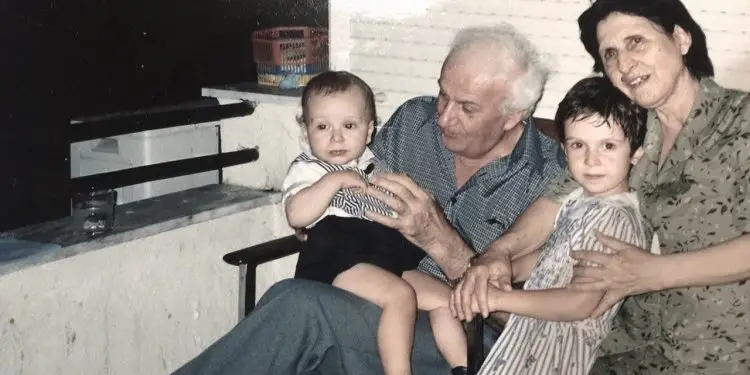
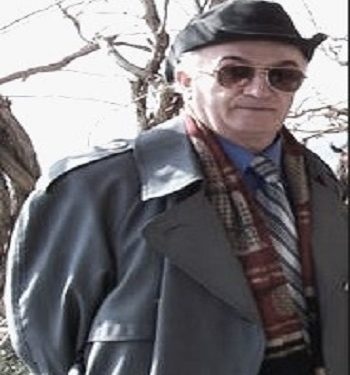
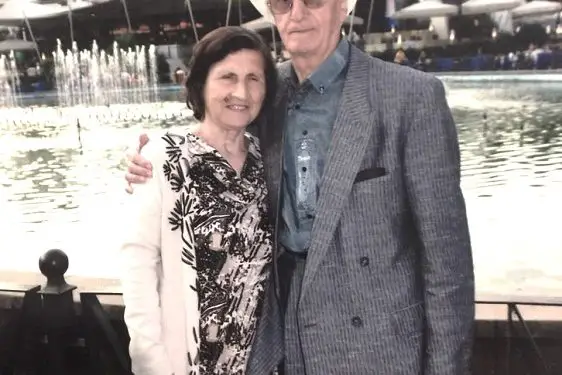
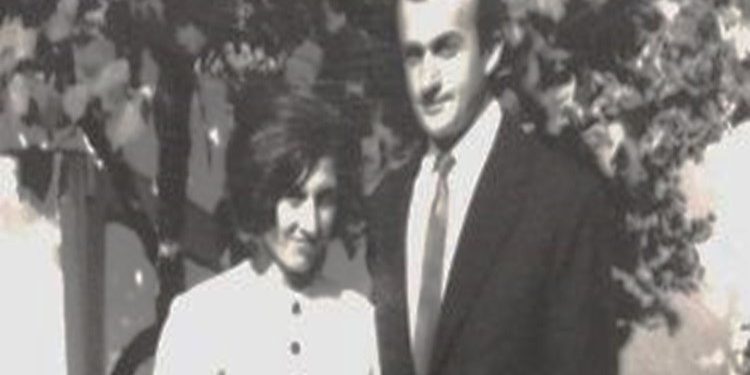
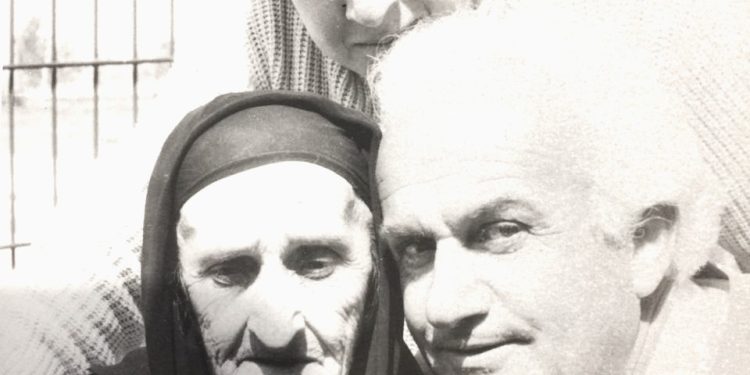
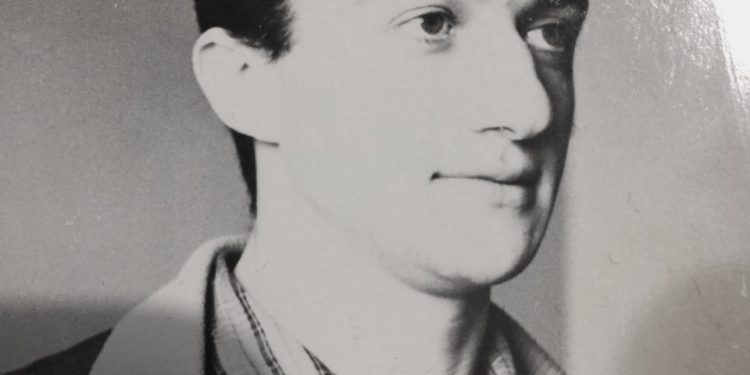

![“After the ’90s, when I was Chief of Personnel at the Berat Police Station, my colleague I.S. told me how they had once eavesdropped on me at the Malinati spring, where I had said about Enver [Hoxha]…”/ The testimony of the former political prisoner.](https://memorie.al/wp-content/uploads/2024/09/admin-ajax-4-350x250.jpg)
